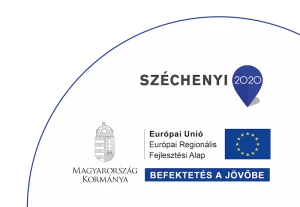Display
Reception of customer layout
As pages created with the platform do not have their own menu system, it is easy to adopt the layout of the client’s online presence. It is also possible to display the layout on the client’s domain (this requires the registration of an A domain record pointing to the IP address of the Pressonline CMS server).
Links
Since each content unit is a separate URL, it can be linked from anywhere, either from another online presence or from a physical space using a QR code.
Presentation module
If the length of the content is short and standard, an image with a predefined layout can be created with an automatic save. It includes the content title, text, customer image, logo, and URL. It can be easily used in any ppt. presentation or other communication.
Advertising box
Each content or aggregation page can include display-programmatic ads (HTML 5) used in the sponsor’s online campaigns.
Sponsor box
Each content or collection page can contain one or more predefined sponsor boxes. These may display the client’s native images (e.g. short “call to action” descriptions with direct links to the relevant subpage in context or even an author introduction), sponsorship or other native advertisements.
Integrated lead collection form
Each content or collection page may include a special sponsor box that allows users to enter certain basic information. This data can be accessed via the client’s customer page or an API. (If you use the box you have to respect the GDPR regulations.)
Integrated automatic Facebook link preview
The platform automatically generates a share preview with a predefined layout for each piece of content to support Facebook sharing. The preview can include the content title and the client’s logo.
Embedded content
Elements of the site can easily be embedded in the content of any other website, similar to the practice of video-sharing sites. For example, a freeword search for content uploaded to the site or a specific piece of content can be automatically displayed on the client’s original website without any programming knowledge.
One database - multiple websites
The Pressonline CMS allows you to freely manage several separate pages from a single database with different URLs and layouts. Only selected content is displayed on each page; the system automatically manages the display of internal links between contents, and the external links for specific content can be changed per appearance. Separate native bars or other additional content elements can be linked to each content per appearance.
Wiki-like content structure
By wiki-like content structure we mean that internal links between concepts in texts also provide user navigation instead of a traditional menu structure or chronological order. This has several advantages: no traditional hierarchy, no menus, which means the site is more usable on mobile, easier to integrate with an existing site, easy and clear grouping of content, and last but not least it is also very popular with Google.
Automatic content recommendation
With an API-based link, relevant, related content can be displayed automatically on the page of a term or on another website. For example, the titles of related terms to a blog post can be automatically displayed.
Support
The possibility of continuous content development
The platform can be flexibly managed to create and insert new content and collections, deactivate and remove old ones, and relocate and update content -–all by automatically tracking, updating and extending the network of internal links.
Future, Draft and Final content statuses
A given content can exist in three different states in Pressonline CMS. Uploaded and finalized published content has the status “Final”. “Draft” indicates content currently under editing and does not appear in the live interface. The most exciting is “Future”: they do not yet exist in text form but are created as blank content by the system based on an internal link from an existing content – set in the admin interface but not visible in the live interface. The great advantage of this solution is that the system automatically creates internal links to this content when they are written and published later.
Automated mass content uploading
The content of an entire Pressonline CMS page can be uploaded in one batch from an Excel spreadsheet with a predefined data structure or from an XML file downloaded from another CMS system.
Canonical setting
Duplicated content, i.e. the same or similar content appearing on more than one page, is not automatically penalized by Google’s rules. It will be accepted as fully compliant if properly managed and indicated which content is primary. All this requires is that a reference to which page is the official version of the page is placed in the code of the page. Pressonline CMS includes this setting so the same content can be displayed on several titles; you just have to indicate which one is canonical in the online administration interface.
Internal link tracking
Pressonline CMS automatically generates the URLs from the titles of uploaded content or created groupings. Since the addresses of all uploaded content and collections can be freely changed at any time, their URLs will also change. The platform automatically tracks and updates these changes throughout the uploaded content to avoid broken internal links on the page.
Buddy - the machine learning robot
An essential element of the navigation of a Pressonline CMS site is the network of internal links that connect each content. Internal links can be easily set up in the administration interface during upload or later, but Buddy also supports their creation. By continuously scanning the content once uploaded, Buddy suggests new internal links – either accepted (in which case the internal link is automatically created) or rejected by the site administrator.
Full online administration
The platform’s administration interface, which is protected by two-factor authentication and has multiple levels of authorization, allows you to fully manage the basic layout properties of a page (e.g. colours, fonts and sizes), menu items and button text, content and content groupings with average web user knowledge. Uploaded content and its data in the system can be downloaded from the interface anytime.
Automatic SEO setup
Google’s expectation for proper SEO technical settings is that a page should include identifiers that make the most important content units processable by Google. These identifiers are automatically set by the Pressonline CMS system based on the content. The automatic SEO setting is done by the system based on the title, lead and keywords in the text. The system’s online administration interface allows you to add or overwrite automatic SEO settings manually.
Customer Page (Dashboard)
On a page protected by double-identification and accessible to the client, the platform continuously displays the main details of the network of uploaded content. This allows you to track the number of internal links (connections) by content unit, the system’s primary traffic data (Google Analytics 4), the list of generated presentation images and their download link, and the data on the leads collected.
API usage
Pressonline CMS provides a standardized API-based data connection to automatically receive selected content from a page or to display its own content on another website.
Entitlement management and change tracking
The administrative functions of Pressonline CMS are supported by change tracking and a well-structured entitlemenr system to ensure that the content of the resulting site can be managed efficiently and securely.
SaaS operation
In a Software as a Service operation, we are responsible for the entire technological operation of the platform (and therefore the pages on it), the continuous updating of the individual software components and the optimization of the platform to reflect the constant changes in the search engine rules which are essential in search engine marketing. Pressonline CMS servers are located in the server centres of the global cloud provider DigitalOcean LLC in Frankfurt and New York.
Facebook tracking pixel
With the built-in Facebook tracking pixel, the platform supports creating target groups of page visitors based on content consumption. These target groups are shared with the client via Facebook Enterprise Manager so they can run effective remarketing campaigns to these audiences in a privacy-compliant way.




